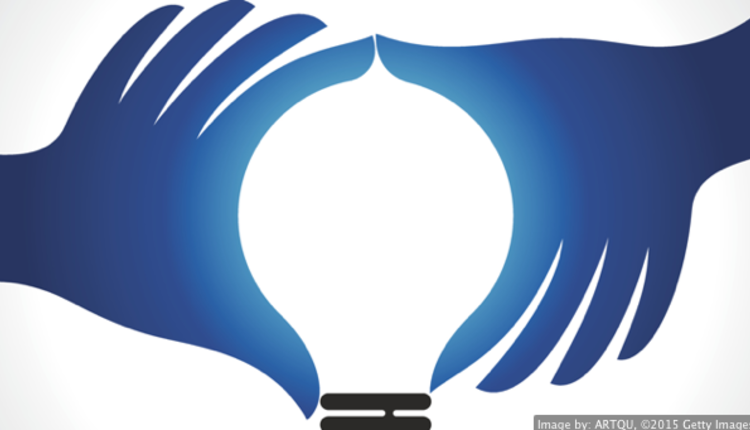
Since Fortune magazine created the very first Most Admired Companies list and ranking of corporate reputation in 1983, academics and practitioners alike have been constantly defining and redefining the answer to a simple question: “Reputation to what end?” With the plate-tectonic shifts brought about by the 2008-09 global financial crisis and the ubiquity of social media in the 2010s, it has become clear that, in 2015, active reputation management is now more important than ever.
Today, managing for competitive advantage now has a sense of urgency that comes in five defining characteristics:
1. The reputation imperative is no longer optional—customer centricity is not enough.
2. The reputation imperative can replace gut feelings with data-driven insights.
3. You can be born with it; you can buy it; or you can build it, but the best organizations all have “it”—the reputation imperative as true appreciation of the need to play by the new rules of stakeholder democracy.
4. The reputation imperative means you need a burning platform to own the future, or you will be left behind and become yesterday’s news.
5. The reputation imperative means you have to do both—risk management (defense) and cross-functional differentiation (offense)—through purposeful corporate storytelling, not by accidental product feature and benefit messages.
Benjamin Moore and AutoNation are two of many organizations where the chief marketing officer works together with their counterparts in communications and knowledge management to engage influencers as a primary audience on their respective reputation journeys.
For years, corporate leaders preached the virtues of communication and engagement with three key audiences: customers, investors and employees. However, focusing exclusively on this “Holy Trinity” of stakeholders is creating diminishing returns for public and private organizations, regardless if they serve B2B or B2C audiences. The answer lies in the rise of influencer groups—ranging from non-governmental organizations (NGOs), to “mommy bloggers,” to corporate alumni—who care more about company behavior than what the company sells and aren't afraid to tell your company’s employees, customers and investors about it!
Leading companies realize that stakeholder ecosystem mapping and a nuanced understanding of “who influences the influencers” are the keys to developing the business rationale for reputation management. Let’s take a closer look at how two very different organizations in different industries are coming to grips with the rise of influencer marketing.
Benjamin Moore
As America’s oldest paint, color and coatings company, Benjamin Moore is also the favorite for “those who know more,” its memorable tagline that appeals to architects, designers and contractors. Former Chief Marketing Officer David Melançon told Reputation Institute in June 2014 that being a more active participant in the influencer echo chamber was a critical component in the company’s reputation strategy.
“Benjamin Moore has been a trusted brand since 1883 and owned by Warren Buffett and Berkshire Hathaway since 2000, but our future success is predicated on how we manage our stakeholder ecosystem and how we pay particular attention to those key influencers who can pass judgment on us that creates actual business impact,” Melançon said. “Finding the proper balance between transactions and relationship management is easier said than done, and that is one of the reasons we decided to invest in a NASCAR partnership in 2013—to give us more of a laboratory among the millions of avid race fans to experiment and try new things.”
From a knowledge management perspective, this meant broadening the Benjamin Moore message (including new content/documents) to more effectively share it with new audiences—including NASCAR’s Fuel for Business Summit where dozens of sponsors come together on a quarterly basis to form B2B alliances and influence networks. Now, sustainability influencers who follow Goodyear’s recycling and innovation influencers, who wax eloquent about 3M’s cross-functional innovation success, are also paying attention to Benjamin Moore’s capability and behavior in both areas, 40 weeks a year, during NASCAR’S season.
AutoNation
As the owner and operator of over 280 franchises throughout the United States, AutoNation is the largest automotive retailer in the United States and is the leading provider of new and pre-owned vehicles. Beginning in 2013, and after an extensive rebranding marketing campaign, AutoNation’s domestic and import franchises and stores were marketed under the unified "AutoNation" brand name from coast to coast. Part of the decision to eliminate the sub-brands and go to market under a corporate umbrella was to make it easier for influencers to support AutoNation, according to former Chief Marketing Officer Greg Revelle.
“Think of all the touchpoints that come into play for a consumer before the final decision to buy an automobile—that’s what keeps me up at night,“ Revelle said. “AutoNation has an advantage of being built from Day One to take influencer opinions into account in how we run our business, but that doesn’t make for too many easy days at the office. It is critically important for us to find third-party endorsements among our customers and key opinion leaders, because paid media alone is no way to build credibility in this space any longer.”
From a knowledge management point of view, this means that data points and storytelling have to be on equal footing inside the company to give Auto Nation the ability to monetize the value of its corporate reputation through every single touchpoint. This calls for more openness and transparency with external audiences than ever before, which puts additional stress on internal repositories of knowledge capture and compelling and differentiated information to ensure that influencers sing the praises of AutoNation rather than call them on the carpet for overpromising and underdelivering!
Influencers have a front-row seat in the reputation economy of the 2010s and can either be a force multiplier to build reputational resiliency or wreak havoc on the most carefully constructed corporate narrative—the choice is yours. Benjamin Moore and AutoNation are two of many organizations where the chief marketing officer works together with their counterparts in communications and knowledge management to engage influencers as a primary audience on their respective reputation journeys. Knowledge management isn’t cited often by financial analysts or investors as a key pillar of corporate strategy, but it is much more difficult to “influence the influencers,” who have your customers’ attention at the moment of truth, when you do not have a coherent document strategy and set of internal processes that project a continuous learning and adaptive enterprise to the outside world. What they don’t know about you CAN hurt you in 2015.
John Patterson is a NY-based senior advisor at Reputation Institute where he has been responsible for thought leadership and global account strategies for the consulting firm since 2010. Follow Reputation Institute on Twitter @Reputation_Inst.


















